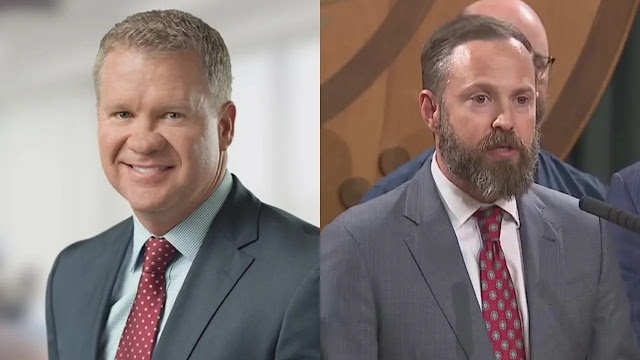A bitter fight over the Texas House Speakership has ignited a major rift within the state’s Republican Party, forcing a confrontation between establishment conservatives and a rising far-right faction. Republican state Reps. David Cook of Tarrant County and Dustin Burrows of Lubbock have both declared victory in the contentious race, offering starkly divergent visions for the state’s political future and the role of Democrats in the House.
The Speakership battle has highlighted deep fractures in Texas’s GOP, pitting party reformers, bolstered by national Republicans like Donald Trump Jr., against a coalition of moderates and Democrats. Trump Jr. endorsed Cook, describing the race as a litmus test for Republican unity.
“It’s unbelievable what is happening in Texas right now,” Trump Jr. posted on the platform X. “A group of so-called Republicans [are] cutting a deal with liberal Democrats to elect a speaker instead of uniting behind the Republican nominee.”
Burrows, however, has rallied Democratic lawmakers to his side, despite previous tensions. His supporters include members of Texas’s urban Democratic caucus, many of whom were angered by his authorship of H.B. 2127, a 2023 law that curtailed city governments’ autonomy. Burrows insists he has secured 76 votes—enough to clinch the Speakership—but both Republicans and Democrats have disputed his count.
“The Speaker’s race is over,” Burrows told reporters this weekend. “I have secured enough to be Speaker of the House for the next session.”
Cook, who was officially nominated by the state GOP on Saturday, counters that Burrows is sabotaging the process. Cook’s nomination came after 26 Burrows supporters staged a walkout, underscoring the party’s divisions.
“I will never walk out on the people of Texas,” Cook posted Monday. “I will show up with integrity every day to get the job done.”
A Party Divided
The feud marks the latest flashpoint in a years-long struggle for control of the Texas GOP. The party’s reformist wing, aligned with figures like Attorney General Ken Paxton and Gov. Greg Abbott, has clashed with traditional conservatives over issues such as school vouchers and the role of Democrats in House leadership.
This year’s power struggle escalated after outgoing Speaker Dade Phelan announced he would not seek reelection. Phelan’s tenure had been marred by intraparty discord, particularly after House Republicans pursued Paxton’s impeachment on corruption charges in 2023.
Despite predictions that the far-right’s rise would cost Republicans seats in purple districts, the party delivered a strong performance in the 2024 general election, consolidating control of the House. Abbott and other state executives have since leveraged this momentum to push for far-right policies, including limiting Democrats’ influence in the legislature.
Cook, the reformers’ choice, has advocated barring Democrats from committee chairmanships—a move Burrows has resisted. The state GOP has also threatened to censure Republican members who support Burrows or propose rule changes, such as allowing secret ballots for the Speakership vote.
Democratic Crossroads
Meanwhile, Texas Democrats are divided on how to respond. Some, like Rep. Ana-María Rodríguez Ramos, who is running for Speaker herself, have criticized colleagues for entertaining alliances with Burrows or Cook.
“Supporting a Speaker who is not backed by his own party’s majority and seeks to appeal to Democrats by defending indefensible policies... repeats 25 years of submission to a leadership that has completely failed Texas families,” Rodríguez Ramos said.
Other Democrats, like Carroll Robinson of the Texas Coalition of Black Democrats, advocate a strategy of resistance. “Let Democrats across the state know we are not going to sell out your freedoms,” Robinson said, urging members to vote “present” rather than back a Republican Speaker.
What’s Next
With both sides entrenched, the Speakership battle remains unresolved, underscoring the GOP’s internal turmoil. Whether Cook or Burrows prevails, the struggle reflects broader questions about the future of Texas governance: Will the House remain a bipartisan institution, or will reformers succeed in consolidating their power?










.jpeg)








